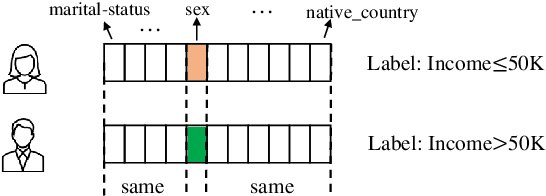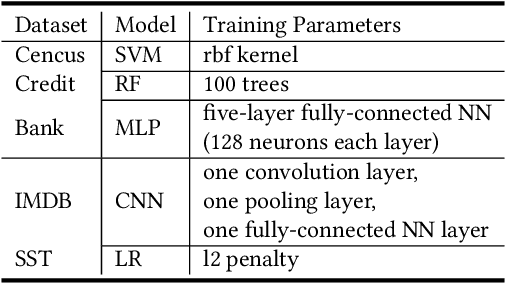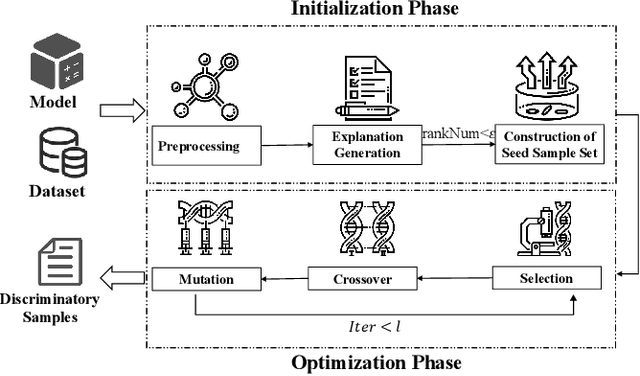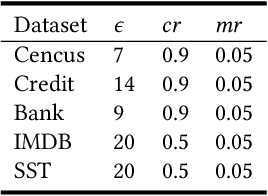Wenying Wei
Explanation-Guided Fairness Testing through Genetic Algorithm
May 16, 2022



Abstract:The fairness characteristic is a critical attribute of trusted AI systems. A plethora of research has proposed diverse methods for individual fairness testing. However, they are suffering from three major limitations, i.e., low efficiency, low effectiveness, and model-specificity. This work proposes ExpGA, an explanationguided fairness testing approach through a genetic algorithm (GA). ExpGA employs the explanation results generated by interpretable methods to collect high-quality initial seeds, which are prone to derive discriminatory samples by slightly modifying feature values. ExpGA then adopts GA to search discriminatory sample candidates by optimizing a fitness value. Benefiting from this combination of explanation results and GA, ExpGA is both efficient and effective to detect discriminatory individuals. Moreover, ExpGA only requires prediction probabilities of the tested model, resulting in a better generalization capability to various models. Experiments on multiple real-world benchmarks, including tabular and text datasets, show that ExpGA presents higher efficiency and effectiveness than four state-of-the-art approaches.
 Add to Chrome
Add to Chrome Add to Firefox
Add to Firefox Add to Edge
Add to Edge